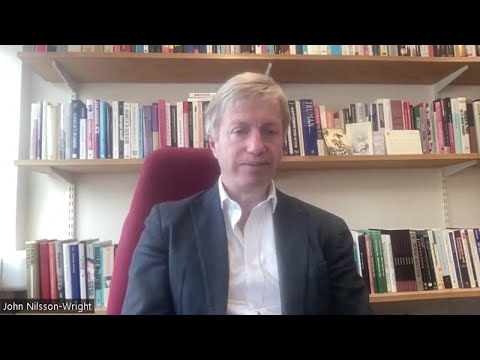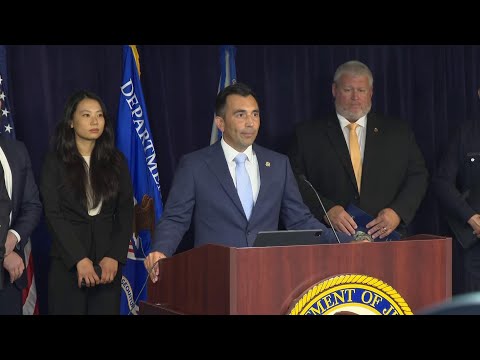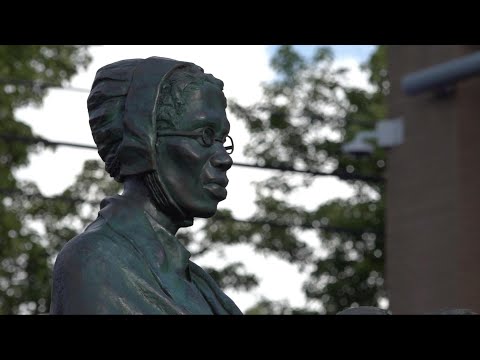(25 Jun 2024)
RESTRICTION SUMMARY:
++VIA VIDEO CALL++
ASSOCIATED PRESS
Cambridge – 20 June 2024
1. SOUNDBITE (English) John Nilsson-Wright , head of Japan and Koreas Programme at the University of Cambridge:
"I think, this current visit a reflection of both the personal ties of affection between the two royal families. But perhaps most importantly of all, the geopolitical significance of the relationship."
++BLACK FRAMES++
2. SOUNDBITE (English) John Nilsson-Wright , head of Japan and Koreas Programme at the University of Cambridge:
"All of this is driven, I think, by the recognition by both London and Tokyo that the security risks in the region, the proximate immediate cause being a nuclear North Korea. But then the wider structural long-term challenge of a rising China as a maritime power. All of these have reinforced the mutual benefits that the two countries have in working together."
++BLACK FRAMES++
3. SOUNDBITE (English) John Nilsson-Wright , head of Japan and Koreas Programme at the University of Cambridge:
"The immense responsibility of being emperor, for a country that, you know, is having to grapple with how to best mediate between the past and the present, for all of the very real and substantial achievements of the political leadership of someone like (Japanese) Prime Minister (Shinzo) Abe, which is, you know, in terms of Japan’s ability to present itself on the world stage as constructive, pragmatic, proactive –to use the language that late Prime Minister Abe used– proactive contributed to peace. For all of the importance that is associated with Mr Abe and that space, there, of course, is another story which is about some elements of the right wing in Japan that, you know, feel that historical memory needs to be revisited. The sense of victimization that emerged after World War II, the ambivalence towards the role of the United States, the critical questions surrounding the Constitution. The desire to restore pride in pre-war traditions. So even in Japan, you know, notwithstanding the stability of the political system there is below the surface, I think also a debate, particularly amongst people who are politically active about how to blend the past and the present."
++BLACK FRAMES++
4. SOUNDBITE (English) John Nilsson-Wright , head of Japan and Koreas Programme at the University of Cambridge:
"So for someone like Naruhito, who’s relatively new to the role, that surely must be something that he’s acutely sensitive towards. So, a visit to Britain in a way, maybe is a reminder of a less complicated time in his life, as you say, one with an element of more freedom. And why wouldn’t he want to have that opportunity to come back? He will not be able to be an anonymous private citizen if he ever was. But simply going back to Oxford and revisiting some of those familiar haunts – I haven’t seen the itinerary for his time in Oxford, but I presume they will build in some time for him to be able to literally re walk the streets of a city that he spent so much time in before."
++BLACK FRAMES++
5. SOUNDBITE (English) John Nilsson-Wright , head of Japan and Koreas Programme at the University of Cambridge:
STORYLINE:
The Japanese emperor’s visit to the UK comes at a time when the UK is seeking to bolster ties with Japan as it aims to be the most influential European nation in the Indo-Pacific region, an analyst claimed.
In October 2020, Britain touted an economic partnership with Japan as the first major international trade agreement it had struck since leaving the European Union earlier that year.
Find out more about AP Archive: http://www.aparchive.com/HowWeWork
Twitter: https://twitter.com/AP_Archive
Facebook: https://www.facebook.com/APArchives
Instagram: https://www.instagram.com/APNews/
You can license this story through AP Archive: http://www.aparchive.com/metadata/youtube/8899a8f1ee374188b4a1f02e87c0b2c9





